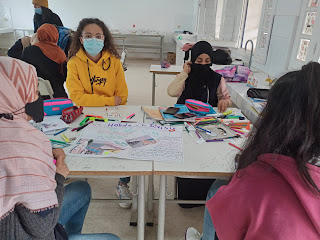1/ Brain Drain (impacts)
Introduction: definition + positive & negative impacts
Details
a) Impacts on Brains
b) Impacts on developing countries
c) Impacts on developed & industrialized countries
Conclusion
Brain drain is a controversial issue & a double-edged weapon
2/ Brain Drain (solutions)
Introduction: definition + negative impacts + solutions
Details
a) Brains’ responsibilities towards their countries (right & duty)
b) Governments of developing countries (to provide/ to support..)
c) Developed & industrialized countries (stop luring / help/ donation…)
Conclusion
Brain drain is a controversial issue & a double-edged weapon
3/ Smoking (drawbacks)
Introduction: smoking is a dangerous issue + negative impacts
Details
a) Health problems: mortal diseases (lung cancer..)
b) Psychological disturbances due to addiction (rejection, stress, anxiety...)
c) Waste of money on poison + coffee (or other related addictive behaviour a day)
d) Passive smoking (effects on close people)
Conclusion
Smokers should quit this habit
4/ Smoking (ways to quit)
Introduction: danger of smoking+ solutions
Details
a) Strong will to quit ‘if there’s a will, there’s a way’ ‘Yes I Can’
b) Remind yourself of drawbacks (examples: lung cancer)
c) Find alternative (regular exercise, balanced diet...)
Conclusion
It’s never too late to make a better change
5/ Healthy Diet (to keep fit & healthy/ to lose weight)
Introduction: importance of having a balanced & healthy diet
Details
a) Strong will to stop bad eating habits and start a healthy balanced diet ‘if there’s a will, there’s a way’ ‘Yes I Can’
b) Remind yourself of drawbacks (examples: obesity, diabetes, heart defect..)
c) To avoid unhealthy food (fast-food, fats, carbohydrates, irregular meals...) ‘your stomach shouldn’t be a waste basket’
d) To know what to eat (vitamins & proteins + examples..) + benefits ‘an apple a day keeps the doctor away’
e) To control life style (regular meals / sport / sleeping time..) ‘if you want to get thinner, walk after dinner OR diminish your dinner’
6/ Morals & Virtues
Introduction: Moral concepts consist of values, virtues and ethics that help individuals distinguish their actions as being morally right or morally wrong
Details:
a) Individual & personal qualities (physical): hard work, perseverance, strong will & determination followed by positive action, voluntary work for the community, donation (money, blood)
b) Psychological values: courage, honesty, trust and high self-confidence, strong belief in one’s abilities, self-reliance
c) Interpersonal & Mutual Values: community life should be based on certain noble values (freedom, love, empathy, compassion, solidarity, equality, democracy, tolerance) and these values are often taught within the home and in schools
7/ Ecological issues (threats)
Introduction: Earth in danger/ in jeopardy due to natural and man-made threats (esp. pollution) + negative impacts Man’s polluting activities
Details
a) Health problems: skin& lung cancer, asthma, breathing difficulties
b) Natural imbalance / disequilibrium (loss of habitat for endangered species/ extinction of species / waste of natural resources: food, forests, drinkable water)
c) Global warming: change in climate, rise in temperature, disappearance of poles (ice-melting), rise in water level, high frequency of natural disasters (Tsunami)
Conclusion
Human life, welfare & existence are at risk unless we act positively to combat such disasters
8/ Ecological issues (solutions)
Introduction: Human life, welfare & existence are at risk due to natural and man-made disasters unless we act positively
Details
A/ Natural Disasters: find measures to reduce the effects (Flood: build dams + dig canals) (earthquakes/ Tsunami/ volcano..: study, research to predict and follow safety procedures: evacuate people..) (Deforestation: stop cutting down the trees+ plant more trees)
B/ Man-made Disasters (Pollution/ Global warming)
a) Individuals’ responsibilities (R.R.R.) / energy saving / eco-driving / economical methods / cleanliness
b) Governments & organisations: sensitizing people / pass and implement strict laws / find alternatives (factories, control..)
c) U.N. international community + super powers: sign, respect and implement the international treaties (Kyoto Protocol) + ban polluting activities (chemicals & nuclear) + protect nature (forests, seas, species..)
9/ Ecodriving
Introduction: pollution + solutions (such as eco-driving)
Details
a) Regular car maintenance: check engine oil and water / check tyre pressure
b) Safe driving style: smooth change of gear, avoid very high and low speed, keep average speed (50 km/h), avoid sudden brakes, avoid unnecessary car options (A/C &Heating)
c) Alternative ‘if it’s not far; don’t go by car’
10/ County life (benefits)
Introduction: benefits of country life compared to city life
Details
a) Health vs disease
b) fresh air vs pollution
c) calm vs noise , crowd vs open space
d) community virtues vs moral decline
11/ City life (benefits)
Introduction: benefits of city life compared to country life
Details
a) Easy & comfortable life: available services (health care, education, offices, internet....)
b) Easy transportation (public means of transport, better roads...)
c) Comfortable housing conditions (well-equipped homes & buildings)
d) More fun: means of entertainment (clubs, cinemas, theatre, stadiums....)
e) Better job opportunities (factories, offices...)
12/ Employment Morale (spirit)
Introduction: importance of work morale
Details
a) mutual respect & trust between employers & employees
b) Rights & duties guaranteed (salary, work hours, conditions, medical care insurance, strike…)
c) Priority for productivity, quality…
13/ Apply for a job (letter)
Introduction: to apply for a specific job (give reference: the ad)
Details
a) Personal information (age, qualities, ambitions..)
b) Qualifications (degrees)
c) Experience
d) enclosed docs + phone number
e) looking forward
Many thanks to Mr Tahri
















